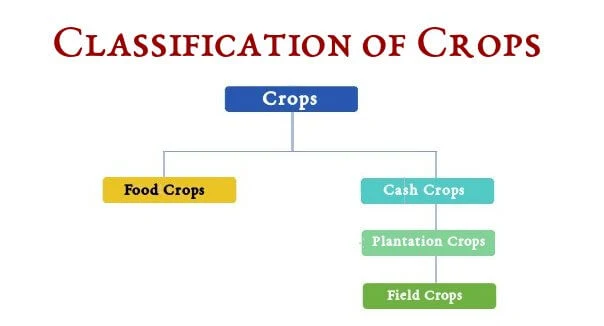Dr. K. Kasturirangan, a highly esteemed Indian space scientist and former Chairman of the Indian Space Research Organisation (ISRO), passed away in Bengaluru in 2025 at the age of 84.
During his nine-year tenure as ISRO chairman, he made significant contributions to India's space program, notably as the project director for the nation's pioneering Earth observation satellites, Aryabhatta and Bhaskara.
He was the second Malayali, following Prof. M.G.K. Menon, to hold the prestigious position of ISRO Chairman.
Beyond his scientific achievements, Dr. Kasturirangan also served as a member of the Rajya Sabha and the Planning Commission, demonstrating his commitment to national development.
Basic Facts
- Full Name: Krishnaswamy Kasturirangan.
- Key Positions Held:
- Chairman, ISRO (1994–2003) (5th ISRO chairman)
- Member, Planning Commission of India
- Member, Rajya Sabha (Nominated, 2003–2009)
- Secretary, Department of Space, Government of India
- Chairman, Indian National Commission for UNESCO
- Chairperson, NEP 2020 Drafting Committee
- Director, National Institute of Advanced Studies (NIAS), Bengaluru
- Awards and Honours:
- von Karman Award (2007)
- Shanti Swarup Bhatnagar Award (Physical Sciences, 1982)
- Padma Shri (1982), Padma Bhushan (1992) & Padma Vibhushan (2000)
Contributions to the Indian Space Programme
He played a crucial role in the development and launch of various Indian satellites and launch vehicles.
Some notable achievements during his leadership at ISRO:
- Chandrayaan-1, India's first lunar mission.
- Successful launch of the IRS (Indian Remote Sensing) series,
- Successful launch of the INSAT (Indian National Satellite)
- Successful launch of the Polar Satellite Launch Vehicle (PSLV)
- Successful launch of the Geosynchronous Satellite Launch Vehicle (GSLV)
- India's first two experimental earth observation satellites: BHASKARA-I & II.
- Played a pivotal role in launching India's first satellite, Aryabhatta.
Pioneered thematic satellites:
- EDUSAT (for tele-education),
- INSAT/GSAT (for telemedicine and communication),
- RESOURCESAT (Earth resources),
- OCEANSAT (for oceanography),
- MEGHATROPIQUES (climate studies),
- ASTROSAT (space science)
- CARTOSAT (for cartography)
During his tenure at ISRO, he has also published 240 scientific papers.
Committees and Reports
Dr. Krishnaswamy Kasturirangan's expertise has extended beyond the realm of space science into critical areas of national policy, particularly concerning education and environmental conservation.
He has chaired and been a member of several important committees, particularly related to education and environmental policy.
In Kerala, Dr. Kasturirangan is perhaps more prominently known for his role as the chairman of the Western Ghats Ecology Expert Panel (WGEEP) review committee than for his significant contributions to India's space program.
National Education Policy 2020
Dr. Kasturirangan chaired the Committee for Drafting the National Education Policy, which laid the foundation for NEP 2020.
NEP 2020 was the first major overhaul of India’s education system in over three decades.
He advocated a flexible and broad-based curriculum that integrates sciences, arts, and vocational training, and replacing the decade-old 10+2 system with a 5+3+3+4 curricular structure.
It also aimed to achieve 100% Gross Enrolment Ratio (GER) by 2030.
There was a strong push for the Integration of technology in the curriculum, such as the introduction of Digital Learning, the establishment of the National Educational Technology Forum (NETF), and online teacher training systems in the draft.
He also proposed creation of Higher Education Commission of India (HECI) and emphasized Autonomy of Institutions and dismantling of rigid silos between streams.
National Research Foundation (NRF was also a key recommendation to fund and promote quality research across disciplines.
Western Ghats Ecology Expert Panel (WGEEP) report
Dr. Kasturirangan was a member of the high-level committee formed by the Ministry of Environment after the WGEEP report by Prof. Madhav Gadgil on the conservation of the Western Ghats sparked controversy.
His committee recommended designating 37% of the Western Ghats as Ecologically Sensitive Area (ESA), balancing conservation with development needs, in contrast to the Gadgil Committee's more extensive recommendations (64%) as Ecologically Sensitive Zones (ESZ).
Key points of the WGEEP report include :
- Phased ESA demarcation using satellite data, biodiversity value, and local input.
- Emphasis on community participation without displacing people or disrupting livelihoods.
- Restrictions on new thermal plants, mining, and polluting industries in ESAs.
Although environmentalists opposed his report, both the central and state governments largely supported it.
SideNotes:
- Current ISRO Chairman - V. Narayanan.
- First Malayali ISRO Chairman - Prof. M.G.K. Menon.
- List of all Malayalai ISRO Chaiman -
- Prof. M.G.K. Menon (1972)
- Dr. K. Kasturirangan (1994)
- G. Madhavan Nair (2003)
- Dr. K. Radhakrishnan (2009)
- Dr. K. Sivan (2018)
- S. Somanath (2022)
- V. Narayanan (12025)
Thanks for reading!!!







Post a Comment
Post a Comment